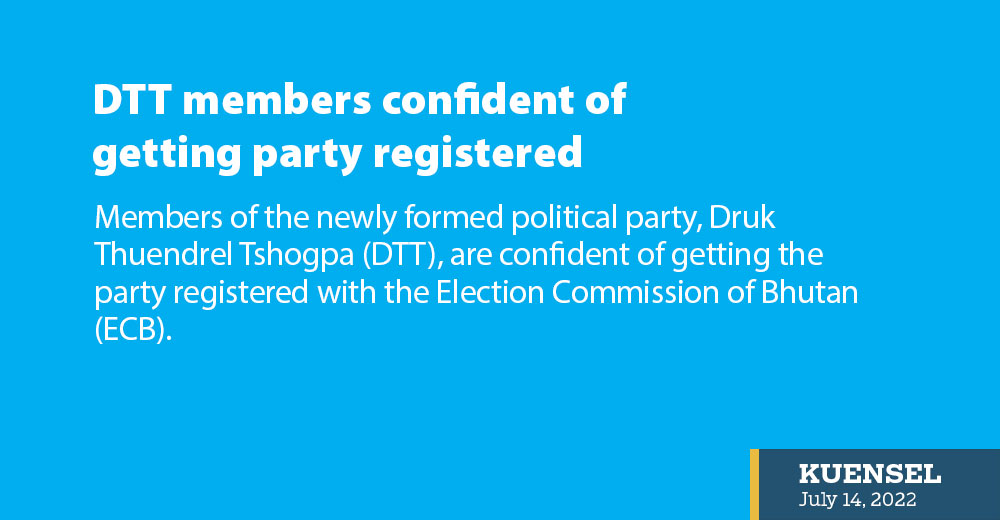MB Subba
Members of the newly formed political party, Druk Thuendrel Tshogpa (DTT), are confident of getting the party registered with the Election Commission of Bhutan (ECB).
It has been more than one and a half months since the party submitted its registration documents.
The party’s president, Kinga Tshering, said that the “registration standards” were “high” and that the party was doing its job “thoroughly” to fulfil the requirements.
He said that the party was asked to submit additional documents and that the documents are being evaluated. “The documents will become not only a party’s document but also a national document.”
Kinga Tshering said that the registration process is expected to be completed soon.
The party has a little more than a year to prepare for the upcoming parliamentary elections.
Some of the party’s officials said they were hoping to make it to the general round comfortably.
It was learnt that the DTT filed documents a few times. However, the party was asked to rework on documents such as the party charter.
The DTT president said that the party had been carrying out its internal activities, including the profiling of candidates. He said that the party had submitted its list of candidates to the ECB.
Along with the registration application, the party has submitted a list of dzongkhag coordinators.
The party held its first general convention on May 2 in Paro, where the party president and other office bearers were elected. The party filed for registration on May 26.
The country will have five political parties if the ECB decides to register DTT. No political party was registered since the 2013 elections although two interest groups had applied for registration with the election commission in 2017.
According to the election Act, the aspiring party must demonstrate that the party is “broad-based with cross-national membership and support, and is committed to national cohesion and stability”.
The election Act empowers the ECB to refuse to register a party if the commission feels that the party has not fulfilled the criteria prescribed by the Act.
However, the commission gives the party’s representatives a “reasonable opportunity of being heard”.


